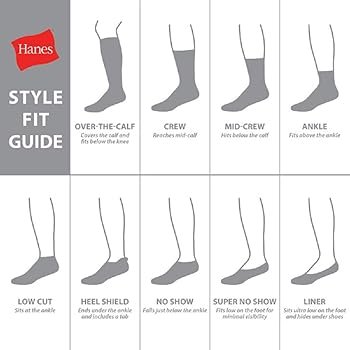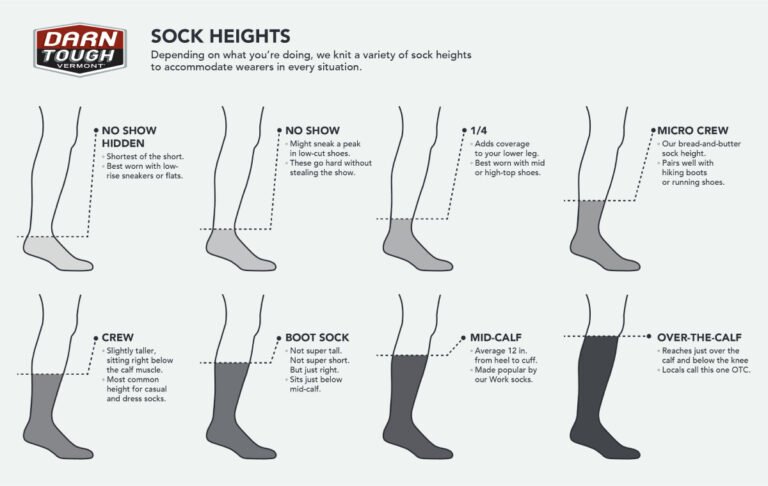Fair-Trade Socks vs. Regular Socks: Does It Make a Difference?
Yes, fair-trade socks make a significant difference compared to regular socks. They guarantee ethical production, support fair wages, and prioritize workers' rights. Unlike regular socks that often use synthetic materials, fair-trade options use sustainable materials, reducing environmental impact. Plus, fair-trade socks tend to be more durable and comfortable. By choosing them, you contribute to positive social change and environmental sustainability. Want to explore how your choices can impact communities and ecosystems further?
Understanding Fair-Trade Certification

While you might think of socks as just a basic wardrobe staple, understanding fair-trade certification can transform how you view your purchases. The certification process guarantees that products meet rigorous fair trade standards, which focus on ethical labor practices, environmental sustainability, and fair wages for workers. When you choose fair-trade socks, you're not just opting for comfort; you're supporting a system that empowers producers and promotes economic freedom. You'll find that these socks often come from cooperatives that prioritize community development and worker rights. By being aware of these standards, you can make informed choices that reflect your values, turning an ordinary purchase into a powerful act of solidarity. Embrace the freedom of choice and let your socks speak for your commitment to fairness.
The Social Impact of Fair-Trade Socks
When you choose fair-trade socks, you're not just making a fashion statement; you're supporting ethical production practices that prioritize workers' rights. These socks empower communities by ensuring fair wages and safe working conditions. By wearing them, you contribute to a ripple effect of positive social change.
Ethical Production Practices
As you consider your sock choices, it's essential to understand the ethical production practices behind fair-trade socks. These products often come from brands committed to sustainable manufacturing, creating socks that not only feel good but also do good. When you choose fair-trade socks, you're supporting ethical labor practices, ensuring workers are paid fair wages and work in safe conditions. This contrasts sharply with many regular socks, which might rely on exploitative labor practices that undermine workers' rights. By opting for fair-trade, you're making a statement about the kind of world you want to live in—one where freedom, dignity, and sustainability matter. Every step you take in fair-trade socks is a step toward a more ethical future.
Community Empowerment Benefits
Choosing fair-trade socks is about more than just ethical production; it's an investment in community empowerment. When you choose these socks, you're supporting local artisans who benefit from fair wages and safe working conditions. This fosters community involvement, allowing individuals to participate actively in their economy. By prioritizing fair-trade, you're helping create economic stability within these communities, enabling them to invest in education, healthcare, and infrastructure. It's not just a purchase; it's a step towards breaking the cycle of poverty. Each pair of socks you buy strengthens the fabric of these communities, giving them the freedom to thrive. So, when you slip on those comfy fair-trade socks, remember you're also stepping into a world of positive social impact.
Environmental Considerations
While you might not think about it, the environmental impact of the socks you wear can be significant. Fair-trade socks often utilize sustainable materials like organic cotton or bamboo, which are grown without harmful pesticides and require less water. These eco-friendly practices not only reduce your carbon footprint but also promote healthier ecosystems. In contrast, regular socks may be made from synthetic fibers that contribute to pollution and waste. By choosing fair-trade options, you're not just investing in your comfort; you're supporting a movement towards responsible consumption. Every pair you wear can make a difference, helping to create a more sustainable future. So, when you reach for your socks, consider their impact on the planet—because your choices matter.
Quality and Durability Comparison
When comparing fair-trade socks to regular ones, you'll notice significant differences in material composition that can affect their overall quality and durability. These variations not only influence the lifespan and performance of the socks but also carry environmental impacts worth considering. Understanding these factors can help you make a more informed choice for your feet and the planet.
Material Composition Differences
Three key factors differentiate the material composition of fair-trade socks from regular socks, greatly impacting their quality and durability. Fair-trade socks often utilize organic materials, such as cotton or wool, which are grown without harmful chemicals, ensuring a softer feel and reduced skin irritation. In contrast, regular socks frequently rely on synthetic fibers, like polyester or nylon, which may offer a cheaper production cost but can lead to less breathability and increased wear over time. The choice of materials not only influences comfort but also affects the environmental footprint of your purchase. By choosing fair-trade socks, you're not just opting for better quality; you're supporting sustainable practices that prioritize the planet and the artisans behind the products.
Lifespan and Performance
Choosing the right socks can greatly impact your comfort and performance, especially if you're active or on your feet all day. When comparing fair-trade socks to regular ones, you'll notice significant differences in sock longevity and performance metrics. Fair-trade options typically use higher-quality materials and ethical manufacturing processes, which often result in enhanced durability. You might find they withstand wear and tear better, reducing your need for frequent replacements. This longevity means you can enjoy superior comfort and support for longer periods, which is essential for those who prioritize their freedom to move. Investing in quality socks not only elevates your performance but also aligns with your values, making every step feel purposeful.
Environmental Impact Consideration
Although many might overlook the environmental impact of their sock choices, it's crucial to recognize how fair-trade socks can contribute positively to sustainability. When you opt for fair-trade socks, you're often choosing products made from sustainable materials, which reduce waste and harm to the planet. These socks typically have a lower carbon footprint compared to their regular counterparts, thanks to ethical production practices that prioritize eco-friendliness.
Moreover, fair-trade socks are designed with quality and durability in mind, meaning they last longer and reduce the need for frequent replacements. By investing in these sustainable options, you're not just treating your feet; you're embracing a lifestyle that values freedom from environmental guilt and supports responsible manufacturing. Choose wisely and make a difference!
Cost Analysis: Are Fair-Trade Socks Worth It?

How do you determine if the extra cost of fair-trade socks is justified? Start with a price comparison. Fair-trade socks often come with a higher price tag, but this reflects ethical production practices, better wages for workers, and sustainable materials. Next, conduct a value assessment. Consider not just the product but the impact your purchase has on communities and the environment. If you're someone who values transparency and social justice, investing in fair-trade socks might resonate with your principles. Ultimately, it boils down to what you're willing to pay for quality and ethical responsibility versus the lower cost of regular socks. By weighing these factors, you can decide if fair-trade socks align with your values and budget.
Consumer Choices and Their Implications
When you make a purchase, especially something like socks, you're not just selecting an item; you're casting a vote for the kind of world you want to support. Your choices reflect your values, and they wield significant power. By opting for fair-trade socks, you're promoting ethical practices and sustainability.
Consider these implications of your consumer choices:
- Consumer Awareness: Understanding the impact of production methods.
- Purchasing Power: Supporting brands that align with your values.
- Social Responsibility: Contributing to fair wages and better working conditions.
Every time you buy, you influence the market. By being mindful of what you purchase, you're not just dressing your feet; you're fostering a movement toward a more equitable and conscious society.
Frequently Asked Questions
What Materials Are Commonly Used in Fair-Trade Socks?
When you're exploring fair-trade socks, you'll find they're often made from organic cotton and other sustainable materials. These choices not only benefit the environment but also support ethical practices that promote freedom and fair wages for workers.
Are Fair-Trade Socks Available in Different Sizes and Styles?
Imagine slipping into socks that fit like a dream! You'll find an array of sizing options and style variety in fair-trade socks, ensuring comfort and expression while supporting ethical practices. Your feet deserve this freedom!
How Can I Identify Genuine Fair-Trade Socks?
To identify genuine fair-trade socks, look for certifications ensuring ethical sourcing and sustainable manufacturing. Trust brands that transparently share production details, as this illustrates their commitment to social responsibility and environmental care. Your choices matter!
Do Fair-Trade Socks Come With a Warranty?
Did you know 66% of consumers prefer brands with ethical practices? While fair-trade socks often don't include warranty details, their focus on quality provides consumer benefits like durability and ethical production, ensuring your purchase feels right.
Can I Find Fair-Trade Socks in Local Stores?
You can often find fair-trade socks in local stores, especially those focusing on sustainable fashion. Supporting these shops not only boosts your wardrobe but also promotes ethical practices and freedom for workers around the world.







